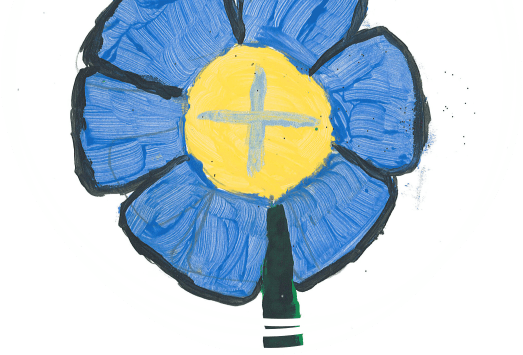- About
- Our care
- Get involved
- Events
- Shopping
-
Jobs & volunteering
Jobs & volunteering
- News
FAQ

What services does CHSW offer?
Children and young people from 0-21 years with life-limiting or life-threatening conditions. We offer support for all the family.
Medical care from specialist doctors, including out of hours cover, 24 hours a day, 365 days of the year.
Our services include:
- Highly specialised clinical care
- Short breaks/respite
- Emergency care
- End of life care
- Sibling support
- Counselling
- Complementary therapies
- Pre and post bereavement support for all family members
- Telephone support? Is this offered? Contact/key worker support?
- Hydrotherapy
- Physiotherapy
- Multi-sensory therapy
- Play – music and art/messy play activities
Do you support children and families from a certain area?
Children and families across the south west of England can be referred to CHSW. We support more than 500 families at our three hospices across the whole region.
How long does the referral process take?
Once all the information available is reviewed, a decision will be made about the appropriateness of hospice care for the child and family. The family and the involved professionals will be informed of this decision without delay. A typical period for completion of this referral process is approximately six weeks.
How do I refer a child or young adult?
We welcome referrals from family members whose child has been diagnosed with a life-limiting condition, or professionals. With your families permission we will then contact your professional support team (GP, consultants, key workers etc) to gather up-to-date information about your child's current needs and likely future prognosis. To make a referral please contact us.
How can children and young people be referred?
Most referrals come from health or social care professionals, but anyone can refer a child or young person.
How many children can stay at the hospices?
We have eight specially adapted bedrooms at both Little Bridge House in Devon, and Charlton Farm in Bristol. At Little Harbour in Cornwall there are six, which are used for respite breaks.
At each hopsice we keep one of these bedrooms free for emergency or end of life care.
What is children’s palliative care?
Children’s palliative care is an active and total approach to care, from the point of diagnosis or recognition, throughout the child’s life, death and beyond. It embraces physical, emotional, social and spiritual elements and focuses on the enhancement of quality of life for the child or young person and support for the family. It includes the management of symptoms, provision of short breaks and care through death and bereavement. (Definition: Together for Short Lives)
What does it cost for families to access care?
All our services are completely free to families who are referred to us.
How much does it cost to run CHSW?
It costs just under £12 million a year to keep our 3 hospices open and raise the funds to continue to be there for children, young people and families (to fundraise).
Does the hospice receive any government funding?
As a charity we receive less than 16% of our funding from government and statutory organisations.
What’s the difference between a life-limiting and a life-threatening condition?
Life-limiting conditions are those for which there is no reasonable hope of cure and from which children will die. Some of these conditions cause slow deterioration over time rendering the child increasingly dependent on parents and carers.
Life-threatening conditions are those for which curative treatment may be feasible but can fail, such as cancer.
(Definition: Together for Short Lives)
Do I need to stay with my child at the hospice?
You have the option to stay with your child or the opportunity to leave your child at the hospice while going away for a break.
Can I stay with my child overnight?
We aim to provide a home from home environment and we try and re-create whatever night routine you have at home when settling your child to bed and through the night and during your child’s stay.
A bit about family accommodation, what is provided i.e. towels, bed linen etc.
What do I need to bring for my child’s visit?
Equipment, disposable medical equipment, medicines (correctly labelled with the child’s prescription), nappies/pads and toiletries for personal use.
Do you close at any time?
We are open 24 hours a day, 365 days a year.
What are teenage weekends?
As all teenagers wish to be independent, the hospice also holds teenage focused weekends, giving them the opportunity to come and stay without their families.
Three different weekends are arranged each year, plus one sensory teenage week. The weekends are often themed to suit varied interests including pamper days, cars and games.
It gives the teenagers the chance to socialise with others and time to talk about their experiences.
What is a bereavement suite?
Each of our hospices has a special room called ‘Starborn’ in which, after a child has died, they can be laid for up to seven days. Starborn is kept at a regulated temperature where the appropriate measures are taken to prepare the body for the funeral. This allows families to be in an environment where they can say goodbye to their child properly, surrounded by loved ones, with support from members of the care team who have looked after their much loved child during their stays.
What is emergency care?
We provide emergency care for many families, and this can be for a number of reasons. It may be that the child is very poorly and the family would like the support that the hospice provides, both physically and emotionally.
An emergency may not necessarily be with the sick child. A parent maybe ill, recovering from an operation, or attending a family funeral for example, and may need additional assistance with their child during this time.
What is end of life care?
Once a family starts to visit our hospices, our care team are available to help them think about the choices they may wish to consider when their child nears the end of their life. An end of life care plan is a document that outlines you and your child’s wishes for their end of life care, including management of pain, other symptoms and provision of psychological, social, spiritual and support for the family into bereavement.
The end of life phase begins when a judgement is made that no more treatment is possible, to ensure care helps children who are no longer receiving curative treatment to
What are short break/respite stays?
We offer short breaks away for the whole family, for respite and relaxation. Mums, Dads, brothers and sisters can all come and stay at our hospices.
We provide one-to-one specialist care for the sick child. This allows the family the chance to have a break away from the worries of caring, and to be together as a family. In this respect, what we provide is completely unlike any other care available.
How many nights of short break/respite stays do you offer?
Families are advised on how and when they are able to book hospice stays. In addition to planned respite nights, emergency stays can be arranged. These are organised on an “as needed” basis.
The way families use their respite stays is determined to suit their personal circumstances, we aim to be as flexible as possible in responding to needs. Some families prefer long visits while others might choose a weekend every few months. We hope each family would feel free to discuss their individual needs with us.
What is sibling support?
CHSW operates a Sibling Service at each hospice, providing dedicated support and care to the brothers and sisters of life-limited children.
During family stays, the siblings can spend as much or as little time as needed with a devoted sibling team. Contact is maintained with the siblings during their time at the hospice, between visits with newsletters, emails and days out and after their brother or sister’s death, for as long as they need.








